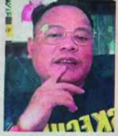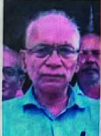Tripura Police filed cases against TIPRA Motha’s Buddha Debbarma and Amra Bangali’s Gouranga Rudrapal over communal speeches. Critics allege bias as TIPRA chief Pradyot Kishore, accused of harsher remarks, remains untouched, raising concerns over selective law enforcement and political appeasement.
The Tripura Police has come under intense scrutiny after taking suo motu action against leaders from both TIPRA Motha and Amra Bangali for allegedly provocative and communal remarks. While the action has been portrayed as a “balancing act,” political observers and civil society groups have pointed out selective targeting, with TIPRA Motha supremo Pradyot Kishore Debbarma notably being spared despite making equally inflammatory statements in the past.

The controversy erupted after a video of TIPRA Motha’s Charilam block president, Buddha Debbarma, went viral on social media. In the clip, Debbarma openly threatened Bengali residents of Bishramganj in Sepahijala district, warning that “no Bengali can stay” in the area. He declared that the current era belonged to the Tiprasa (tribal community) and issued veiled threats of violence by referencing machete attacks. Debbarma also cited the number of Bengali families in the area, allegedly in an attempt to intimidate them.
The police responded by registering a suo motu FIR against Debbarma, citing provisions under the Bharatiya Nyaya Sanhita (BNS), 2023. According to the FIR, Debbarma’s remarks were “inflammatory in nature, capable of disturbing public order, creating communal tension, and instigating violence.” Officials said such content, when widely circulated on social media, had the potential to gravely affect peace and tranquility across Tripura.

However, in a move that many described as politically motivated, the police simultaneously filed a case against Amra Bangali leaders, including Gouranga Rudrapal, for making provocative remarks during a recent public rally in Agartala. At the event, Rudrapal and others raised slogans such as “Agartala kaar, Amra Bangalir aar kaar” (Whose city is Agartala? It belongs to Amra Bangali). The FIR accused Rudrapal of delivering hate speeches prejudicial to communal harmony and likely to create ethnic disturbances.
West Agartala Police Station Officer-in-Charge Rana Chatterjee confirmed that both Debbarma and Rudrapal had been served notices to appear before the Investigating Officer. He stressed that the police would record their statements and proceed in accordance with law.
Balancing Act or Bias?
While at first glance the dual action appeared even-handed, observers quickly highlighted glaring inconsistencies. Critics argued that the police deliberately ignored stronger and more provocative statements made earlier by Pradyot Kishore Debbarma, TIPRA Motha’s supremo.
Pradyot, in a high-profile speech delivered in New Delhi, had openly claimed “personal ownership” of Agartala, Teliamura, and Kanchanpur, sparking widespread outrage. Observers noted that such remarks were far more aggressive than those made by Rudrapal and could easily be classified under the same legal provisions cited against Amra Bangali leaders. Yet, no suo motu action was initiated against Pradyot, raising questions about double standards.
This is not the first time allegations of selective inaction have surfaced. Years earlier, Pradyot and then-ATTF president Ranjit Debbarma had stormed into Khowai Police Station and allegedly assaulted a detainee in custody in full view of police personnel. Despite the blatant violation of law within police premises, no FIR was lodged, fueling suspicions that authorities were reluctant to act against him due to political compulsions.
The Political Calculus
Analysts suggest that the government’s reluctance to move against Pradyot stems from two primary factors—political expediency and fear of backlash. TIPRA Motha enjoys significant tribal support, making it a formidable political force in Tripura. Taking direct action against its chief could risk political instability or widespread tribal resentment. By contrast, Amra Bangali leaders are considered a weaker political entity, making them easier targets for punitive action.
The latest FIRs, therefore, appear to reflect a strategy of “equalizing” communal fault lines—penalizing one tribal leader and one Bengali leader to project neutrality, while sidestepping politically sensitive figures. Critics argue that this balancing act may temporarily reduce immediate criticism but ultimately undermines public confidence in the impartiality of law enforcement.
Communal Sensitivities at Stake
Tripura has a long history of ethnic and communal tensions between its indigenous tribal population and Bengali settlers. The rhetoric of exclusion, threats of displacement, and assertions of ownership over territories can easily destabilize the fragile social fabric. Civil society groups have repeatedly warned that such hate speech, whether from tribal or Bengali leaders, risks inciting violence and deepening mistrust between communities.
The FIRs against Debbarma and Rudrapal underline the growing challenge for law enforcement in curbing provocative speeches while navigating political minefields. The selective inaction against Pradyot, however, may worsen the perception of bias and embolden other leaders to continue making divisive statements without fear of consequences.
The Road Ahead
As the investigation progresses, all eyes will be on whether the state government dares to extend the same legal standards to more powerful figures like Pradyot Kishore. Political observers argue that unless the law is applied uniformly, Tripura risks sliding deeper into communal polarization.
| Also Read: A dangerous drift toward communal violence |
The demand for fairness in legal action has now become a central talking point in state politics. For many, the controversy is less about the content of individual speeches and more about the credibility of the state’s institutions in safeguarding justice and communal harmony.
With notices served and investigations underway, the handling of this case will set an important precedent—whether Tripura’s administration is willing to confront political realities or continue walking a tightrope between appeasement and enforcement.









